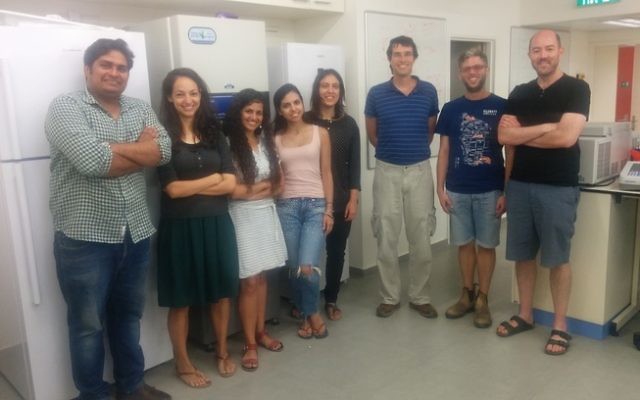Collaborating to find a cure
A CURE for the debilitating muscle-wasting disease Facioscapulohumeral Dystrophy (FSHD) still evades scientists, but Australian, Israeli and Belgian researchers have begun a first-of-its-kind collaborative project in a bid to find a breakthrough.

A CURE for the debilitating muscle-wasting disease Facioscapulohumeral Dystrophy (FSHD) still evades scientists, but Australian, Israeli and Belgian researchers have begun a first-of-its-kind collaborative project in a bid to find a breakthrough.
With support from Australian-based charity the FSHD Global Research Foundation, which delivered a major grant last month, a team of scientists led by Dr Nir Kalisman at the Hebrew University of Jerusalem will collaborate across borders to study the toxic protein DUX4 at an unprecedented level of detail.
The protein is believed to be the main culprit that causes muscle destruction and an acceleration of the ageing process in patients with the rare disease, leading to loss of mobility and movement.
For the next two years, Professor Steve Wilton from Murdoch University in Western Australia and Dr Frederique Coppee at the University of Mons in Belgium and their teams will work closely with the Kalisman laboratory, which is renowned for being at the cutting-edge of structural biology innovations and techniques.
“We wish to thank the FSHD Global Research Foundation for awarding us this generous collaborative grant,” Dr Kalisman said, “and we are all looking forward to starting this exciting project.”
The foundation’s managing director Natalie Moss said it is now endeavouring to raise funds so it can match the money it has already allocated to the project.
“We are interested in hearing from members of the Australian Jewish community who would like to partner with the foundation to leverage the impact of this world-first collaboration,” Moss said.
“In particular, we seek to support two graduate students from the Hebrew University who have joined Dr Kalisman’s team [to focus on mass-spectrometry analysis].
“There will be opportunities to interact with the scientists during our planned activities for Science Week in late 2018.
“The foundation sees this project as an avenue for wider collaboration between Israeli researchers and its global network of scientists.
“And we met with the Hebrew University’s president Professor Ben Sasson during his visit to Sydney in July to express interest in ongoing collaboration.
“We hope this project is only the beginning.”
The FSHD Global Research Foundation was recently named the 2017 Charity of the Year at the Australian Charities Awards.
“Through transparency, accountability, good governance and pure passion, the foundation aims to achieve results as quickly as possible,” FSHD’s director of philanthropy, Vanessa Kredler, said.
SHANE DESIATNIK

comments